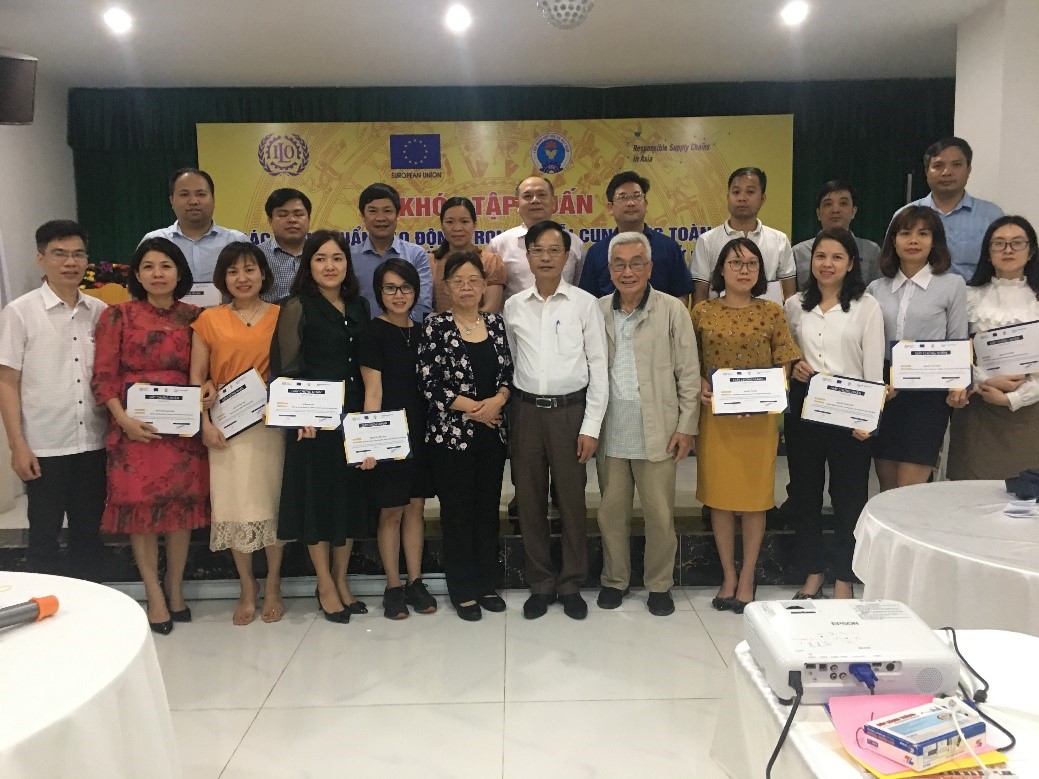Responsible Supply Chains in Asia
Cooperatives - a key path to promote responsible business conduct in Vietnam
The Responsible Supply Chains in Asia programme is targeting a key business organisation with training and capacity building.

The Vietnam Cooperative Alliance is the leading national organisation representing all cooperatives in the country. The Responsible Supply Chains in Asia National programme coordinator, Tran Minh Tri, felt targeting it for capacity building on CSR and responsible business practices was a logical step.
“The VCA has an extensive internal training operation. If we can build their capacity and awareness of responsible business conduct and it’s an effective way to reach many thousands of businesses and their workers,” says Tri.
In late March, the RSCA organised a three-day workshop for VCA delegates and trainers from 13 northern mountainous provinces in the Yen Bai province. The training follows an earlier session for VCA representatives from Southern provinces held in January.
Following opening remarks by Dr Chang-Hee Lee, country director of the ILO, and Mr Nguyen Ngoc Bao, Chairman of Vietnam Cooperative Alliance (VCA), delegates began training with CSR experts from the ILO and a risk management expert - a former member of the Prime minister’s economic advisory group.
Delegates were introduced to the ILO’s MNE Declaration - a comprehensive guide on the labour dimensions of Corporate and Social Responsibility. Also introduced and discussed were the International Labour Standards and concepts of decent work.
Le Van Cong, of the VCA - Tuyen Quang province was keen to see the lessons learned incorporated into their training. “After this course, when we return, we will certainly develop a plan for providing CSR training to our members.” Cong was surprised to learn that issues like forced labour were not an abstract consideration in Vietnam, “This topic was not a political exaggeration, but is indeed something we might witness here and there in various formats.”
Also attending the training was Nong Thi Thu Hang, a VCA consultant. “Before this training, my knowledge of ILS and the national Labour Code has been very limited. I came to realize that the application of labour standards in the production of a supply chain is very important, especially in the context of Vietnam integration in the world economy by the number of FTAs of a new generation.”
Indeed, the training aligns with a broader national push. In recent years, Vietnam has engaged in a growing number of bilateral and multilateral trade agreements and schemes as well as regional economic integration arrangements. These agreements contain several commitments of Vietnam relating to environment, business and trade conditions, the social and labour provisions related to workers’ rights.
Ms Hang noted that as large companies establish in the region, there are competitive arguments to improving labour standards, “cooperatives are facing hard labour competition as workers have more options for better jobs in large companies with more stable income and benefits.”